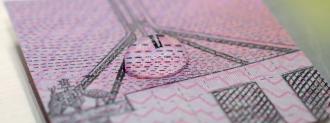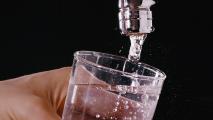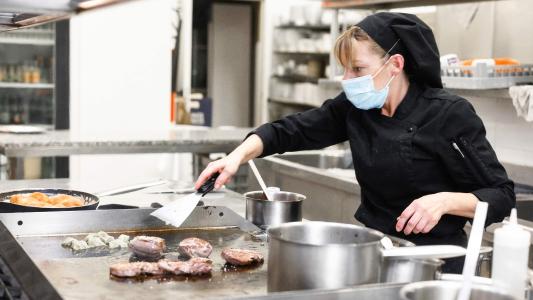Researchers from Australia’s national science agency, CSIRO, have reported that the coronavirus can survive on surfaces — including glass and paper money — for up to 28 days.
That’s significantly longer than scientists initially thought, but should the news change what you do to avoid catching COVID-19?
When the Coronavirus Can Survive on Surface
Answering that question starts with taking a closer look at the new study, which was published in the peer-reviewed Virology Journal.
The CSIRO researchers started by mixing the coronavirus into an artificial mucus at concentrations similar to what’s been found in saliva samples from COVID-19 patients.
They then allowed the fake spit to dry on multiple swatches of different materials and stored the swatches at three different temperatures — 68 degrees Fahrenheit, 86 degrees Fahrenheit, and 104 degrees Fahrenheit.
Finally, the researchers checked the samples after different amounts of time (one hour, one day, etc.) to determine how long the coronavirus can survive on surfaces at different temperatures.
They discovered live virus particles on several materials — including vinyl, glass, stainless steel, and paper money — after 28 days at the lowest temperature. As the temperature increased, the survival time decreased: seven days at 86 degrees Fahrenheit and 24 hours at 104 degrees Fahrenheit.
All of the work was done in the dark, eliminating any potential impact of UV light on the coronavirus.
How to Avoid Catching COVID-19
This new study does add to our understanding of COVID-19, which could improve our ability to combat it. However, the fact that the coronavirus can survive on surfaces longer than we thought doesn’t mean we all need to start sanitizing our cash.
The CSIRO research proves that the coronavirus can survive for 28 days under its ideal conditions: dark and relatively low temperature.
Experts say you’re unlikely to catch COVID-19 from an infected surface.
In the real world, a surface with coronavirus on it would likely be exposed to light and possibly higher temperatures, decreasing the virus’s chances of surviving the full 28 days.
Additionally, just because some of the coronavirus can survive on surfaces doesn’t mean enough of it can survive to infect a person — several experts have pointed out that the chances of catching COVID-19 from an infected surface, known as fomite transmission, is very small.
Ultimately, you should just keep doing what you were doing to avoid catching COVID-19 before this study was published: social distance as much as possible, sanitize your hands often, and don’t stick your fingers up your nose right after handling cash.
We’d love to hear from you! If you have a comment about this article or if you have a tip for a future Freethink story, please email us at [email protected].






